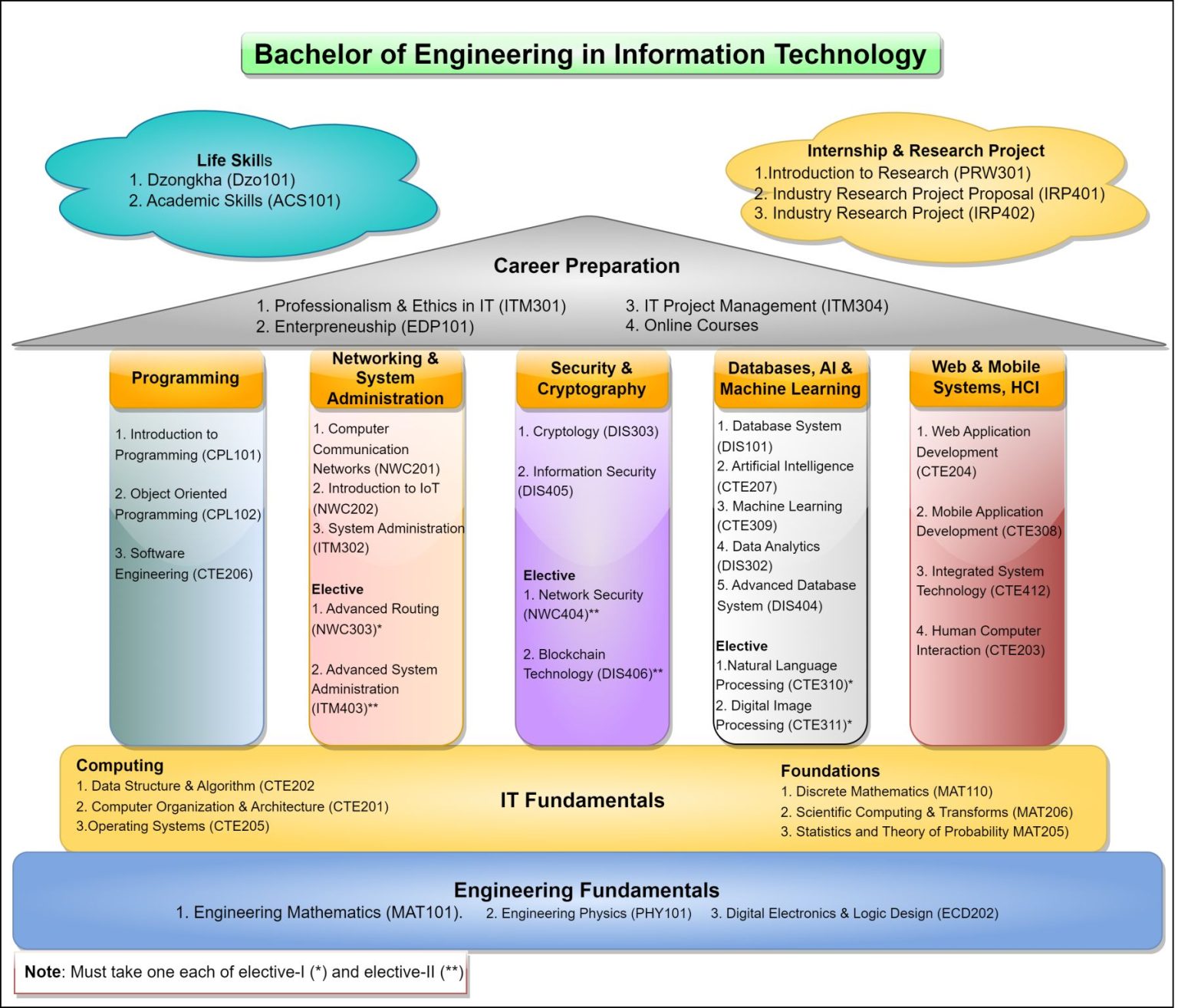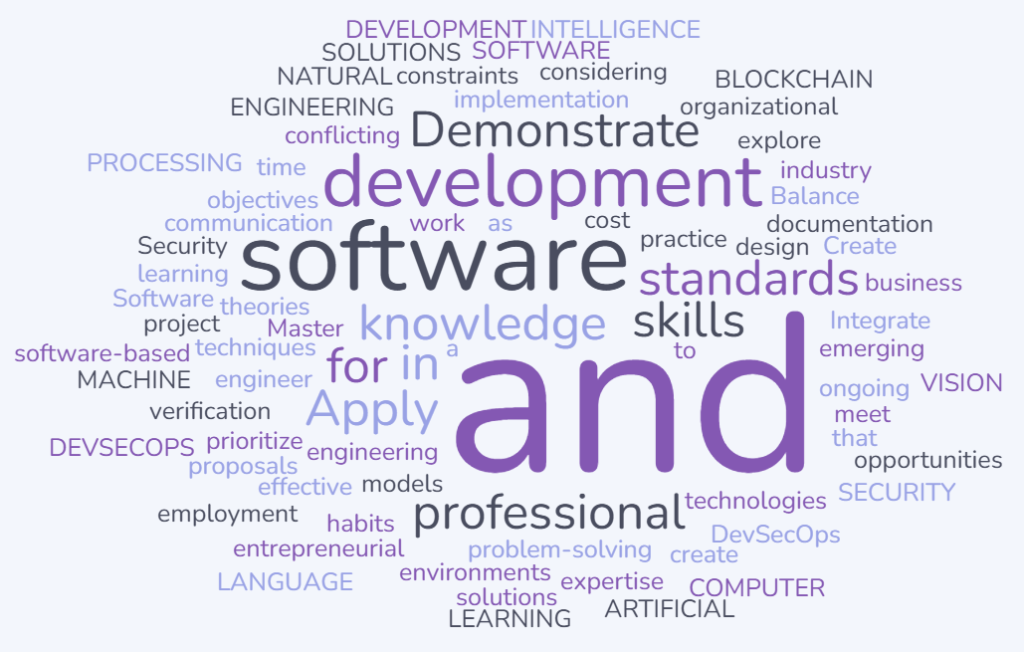Bachelor of Engineering in Information Technology

Aims of the Programme
The programme aims to produce competent engineering graduates in Information Technology by fostering knowledge, skills, and dispositions through deliberate practice in relevant content, demonstrating IT proficiency.
The programme also aims to offer diverse professional and lifelong learning opportunities, producing professionals prepared to perform duties ethically and solve real-world problems with innovation. Students will receive a solid foundation in IT and engineering fundamentals, supporting five key pillars: Programming; Networking and System Administration; Cryptography and Security; Databases, AI and Machine Learning; HCI, Mobile and Web Systems; all underpinned by a focus on Entrepreneurship and Professionalism geared towards career preparation.
The programme dynamically remains responsive, continuously adapting to stay abreast of evolving global standards and advancements in cutting-edge technologies.
Learning Outcomes of the Programme
On completion of the programme, graduates will be able to:
- Apply computing, science, and mathematics principles to solve complex IT engineering problems.
- Analyse the problem, identify and define the computing requirements appropriate to the solution and apply computational approaches to the problem-solving process.
- Design, implement, and evaluate computing-based systems in the IT discipline to meet specified requirements.
- Use appropriate and emerging technologies to improve the performance of systems and discover the cause of performance problems in a system.
- Perform system integration and API-based architecture development.
- Demonstrate an understanding of security issues in the design and administration of computer networks and develop proficiency in the defence of network and system integrity.
- Develop and conduct appropriate experimentation, analyse and interpret data, and use engineering judgment to draw conclusions.
- Appraise innovative solutions to address real-life problems by developing predictive systems using machine learning and data analytic tools.
- Recognise ethical and professional responsibilities in IT solutions within global, economic, environmental, and societal contexts.
- Apply entrepreneurial knowledge and skills to explore tech-based business opportunities and develop a business proposal for creating employment opportunities.
- Collaborate in multi-disciplinary groups to address technology-related challenges and achieve common goals.
- Communicate effectively technical information to diverse audiences with clarity and purpose.
- Evaluate the project requirements and associated risks to develop an effective project plan and implement the project within the organisational constraints.

Programme at a Glance
Majors Offered
→

Career Related Opportunity
The demand for skilled IT professionals is growing rapidly across the country, driven by diverse needs in the private sector, corporate and government agencies, and educational institutions. A pertinent example is the government’s Digital Transformation Initiatives, which require significant IT support. Additionally, IT innovations, the expansion of communication systems, tech-driven initiatives in various sectors, and the focus on fostering technopreneurs are creating even greater demand for skilled IT professionals in industries of all sizes. This surge also reflects the government’s unwavering commitment to leveraging technology for national development.
The Information Technology field is one of the fastest-growing and most lucrative job markets in the global service sector, offering graduates a wide range of employment opportunities across various organizations. IT graduates will be the key figures activating vital ICT initiatives and driving digital transformation. In Bhutan, this trend translates to even greater significance for IT graduates, presenting diverse employment prospects. Opportunities arise in both private and government sectors, within and beyond the country’s borders, with the potential for self-employment also thriving.
Upon graduation, students can work as system administrators, network engineers, information/network security engineers, MLOps and DevOps engineers, database engineers, apps/software developers, programmers and system analysts.
